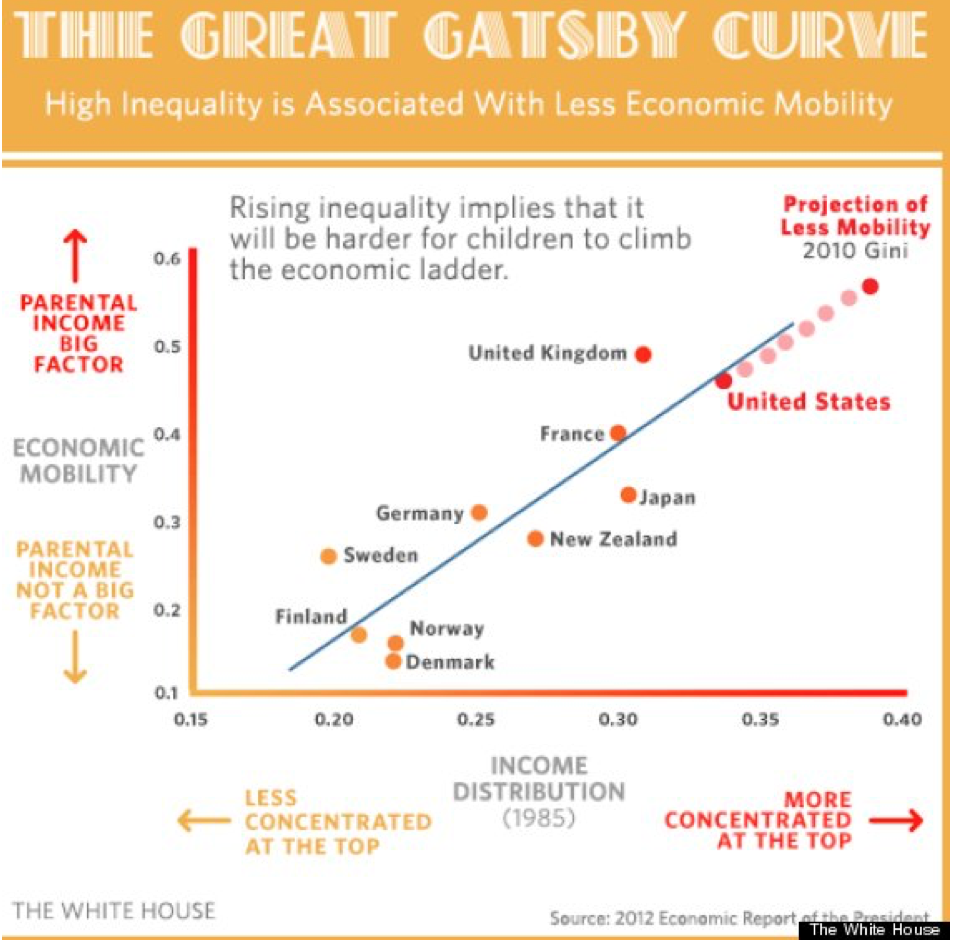Are We Seeing a New ‘Inequality Paradigm’ in Social Science?
Resource type: News
LSE British Policy and Politics Blog | [ View Original Source (opens in new window) ]

Social scientists have long been concerned with inequality, yet the focus has often been on its theoretical and political aspects. This is now starting to change, writes Mike Savage, co-director of the International Inequalities Institute at the London School of Economics and Academic Director of the Atlantic Fellows programme. Thanks to research interventions by scholars, together with attempts to institutionalise cross-disciplinary work, the focus is shifting from normative debates and towards the more technical, empirical and historical problems of inequality.
By Mike Savage
Compared to the natural and medical sciences, the social sciences can be remarkably conservative. Whereas it is routine for natural scientists to define their expertise in terms of their capacity to address specific ‘problems’, social scientists tend to default to their disciplinary homes, ultimately writing as economists, sociologists, political scientists and so on, and playing to the comforts of one’s home audience. Strangely, this ‘disciplinary default’ seems largely to have continued even amidst the massive social changes of recent years which might have been expected to cause social scientists to have pooled their skills.

If we were to re-invent the social sciences from scratch today, would we really come up with the same disciplinary silos which now dominate universities across the globe? Would we still want to distinguish anthropology and sociology in these post-colonial times? Wouldn’t we ideally want a closer encounter between economics and political science given the simultaneously political and economic tumults of recent years? Aren’t all our concerns fundamentally geographical and historical to the extent that hiving these off as separate disciplines is disabling? Is it really useful to distinguish ‘basic’ and ‘applied’ social science?
Anyway, perhaps the situation is changing fast. For over the past decade the challenge of rising inequality might just be a real issue which causes genuine and effective cross-disciplinary synergy and is forcing the social sciences to reassess their disciplinary loyalty.
The significance of this ‘inequality paradigm’ can be seen most directly through the striking appeal of high-profile of social scientific work from different disciplines on the issue of inequality. A cursory tour of leading figures would include the work of economists such as Tony Atkinson, Joe Stiglitz and Thomas Piketty; of sociologists such as Beverley Skeggs, John Goldthorpe and David Grusky; of legal scholars such as Kimberlé Crenshaw and Nicola Lacey; of epidemiologists such as Michael Marmot, Richard Wilkinson and Kate Pickett; of political scientists such as Robert Putnam, Kathleen Thelen, Catherine Boone and Paul Pierson; of geographers such as Danny Dorling, and of social policy researchers such as John Hills. And so on – this list is far from exhaustive. The work of these social scientists typically commands more attention than their peers working on other fields, and carries sway across much of the wider social sciences. One of the striking features of this high-profile work is that many of these proponents criticise their own disciplines as a means of emphasising for the greater importance of foregrounding the study inequalities. Piketty criticisms of economists do not mince any words:
‘To put it bluntly, the discipline of economics has yet to get over its childish passion for mathematics and for purely theoretical and often highly ideological speculation, at the expense of historical research and collaboration with the other social sciences’ (Piketty, Capital in the 21st Century, p. 32)
Over and beyond these important research interventions, there are also a number of attempts to institutionalise cross-disciplinary working around the theme of inequalities. Notable examples include the LSE’s own International Inequalities Institute which recently announced major funding from Atlantic Philanthropies to train leaders to combat inequality. They would also include Harvard’s multi-disciplinary program on Inequality and Social Policy; and the OECD’s recent investment in the Centre for Opportunity and Equality. There is also a clear trend for previous centres devoted to poverty to redefine their interests to include inequalities – this would extend to Sussex’s Centre for Poverty and Inequality Research. The International Social Science Council have devoted their 2016 World Report to the theme of inequalities. In short, in a very rapid period of time we are seeking a very fast institutional investment in the inequalities arena.

Fast moving intellectual currents feed into the inequality space. The most important of these is the effectiveness of Piketty, in particular, in shifting the debate from predominantly normative and hence inherently politicised positions, to a more technical, empirical and historical focus. For, whilst social scientists have long been concerned with inequality, this has usually been addressed from specific theoretical and/or political positions – Marxism, liberalism, feminism, anti-racism and so on – which has generated foundational disputes and controversies, rather than sets of problems to work on.
By contrast, by emphasising the importance of escalating inequalities in recent decades, Piketty has sidestepped (though not eradicated) the normative debates – he is very careful not to be drawn into discussions about whether inequality per se is bad – and focused concerns on the current conjuncture in which inequality is reaching historically high levels. In exploring the distinctiveness of contemporary inequalities and thus specifying, rather than generalising, the question of inequality, it is thus possible for those who have very different foundational views on inequality to nonetheless find some common cause.
Linked to this shift, we can, in Thomas Kuhn’s sense, identify a number of ‘exemplars’ which exemplify how the study of inequality can be proliferated, exported and expanded. Just as in the natural sciences, these tend to take a visual form, notably in the U-shaped curves which are now familiar from the work of Piketty, which demonstrate a trend for income and wealth inequality to decline in the middle 20th century before rising in recent decades. These exemplars might also take the form of Miles Corak’s ‘Great Gatsby Curve’ as popularised by the White House which is illustrated below.

This kind of visualisations are amply used by Wilkinson and Pickett to demonstrate how more unequal societies are also associated with a range of worse outcomes.
The significance of these exemplars needs to be underscored. They give visual repertoires which allow ready access to specific instances of how inequality matters. The power of visualisations in doing this work of mobilisation are striking, also being very clear in Danny Dorling’s wonderful mapping of inequalities. However, this also lends itself to a backlash which is gathering force – that the inequality paradigm is fundamentally descriptive and lacks analytical ambition.
I think this charge misses the point. What all the research interventions mentioned above show is that descriptive strategies can be used for analytical purposes. However, there is no doubt that focusing on the dynamics which generate inequalities, is crucial to further advances and should be the focus of further attention.
It is clear, in my view, that the inequality paradigm offers a remarkable opportunity for the social sciences to retool ourselves to demonstrate our contemporary relevance. To take best advantage of this, we cannot simply rely on our visualisations and exemplars – impressive though these are – but we also need to extend our analytical range and demonstrate we can understand the causes of inequality. This is the work which the LSE’s International Inequalities Institute is committed to, and which we hope we will hope will play a key role in future debates.
The International Inequalities Institute at the London School of Economics is an Atlantic grantee.